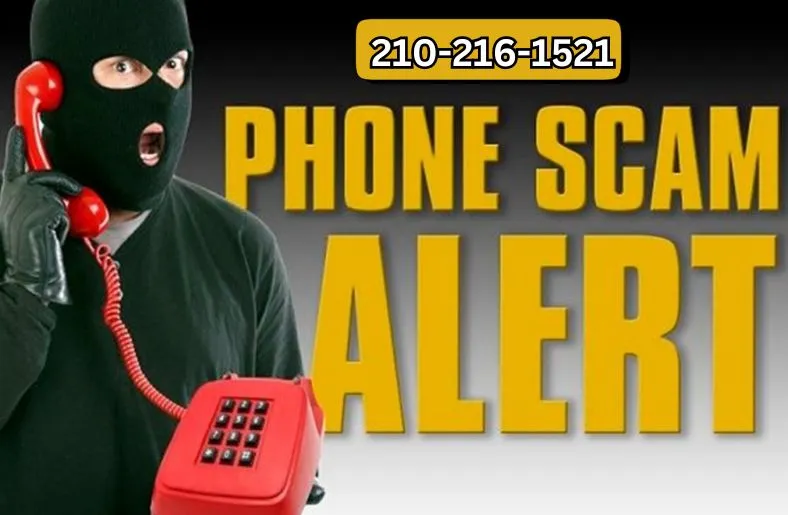Introduction
In today’s world, phone scams are everywhere. They trick many people into giving away their money or personal information. One such number linked to these scams is 210-216-1521. Scammers use this number to target unsuspecting victims. They often pretend to be from trusted organizations. This makes it hard for people to know they are being scammed.
To protect yourself, you need to understand how these scams work. It is essential to stay alert and recognize warning signs. Knowing what to look for can help you avoid becoming a victim. Remember, scammers are skilled at manipulation. They often create a sense of urgency, making you act quickly.
By staying informed and cautious, you can safeguard your personal information. In this article, we will explore the dangers of the 210-216-1521 scam. We will also provide tips on how to protect yourself from these threats. Let’s work together to keep you safe from phone scams.
The Rise of Phone Scams like 210-216-1521
Phone scams have become very common in recent years. More and more people are falling victim to these tricks. Scammers use different methods to steal money and information. For example, they often call pretending to be from trusted companies or government agencies. This makes it hard for victims to realize they are being scammed.
Additionally, technology has helped scammers improve their tactics. They can now disguise their phone numbers, making them look like local calls. This makes people more likely to answer. Furthermore, scammers create fake emergencies to pressure you into acting quickly. They might say your bank account is in danger or you owe money.
These tactics make phone scams harder to spot. Many people, especially the elderly, can be easily fooled. They may not know the warning signs. As scams continue to rise, staying informed is crucial. By learning about these tricks, you can better protect yourself. Awareness is your best defense against phone scams. Always stay cautious when receiving unexpected calls.
Understanding the 210-216-1521 Scam
The 210-216-1521 scam involves callers trying to trick you. They often pretend to be from real companies or government agencies. This makes their calls seem trustworthy. Scammers use this number to create a sense of urgency. For example, they might say you owe money or your account is in danger.
One common tactic is impersonation. The caller might claim to be from a bank and ask for personal details. They could say your account is compromised. This approach is designed to scare you into providing information quickly. Another method is the tech support scam. The caller claims that your computer has a virus. They then ask you to pay for services that are not needed.
Additionally, some scams promise prizes or money. The caller might say you won a lottery but must pay fees to claim it. This tactic is enticing but is just a way to steal your money. Scammers also use phishing techniques. They ask for sensitive information like Social Security numbers. They often say it’s for verification or a refund.
Recognizing these tactics is essential. Scammers are very skilled at manipulation. They create fear and urgency to push you into a quick decision. If you receive a call from 210-216-1521, be cautious. Always remember that legitimate organizations do not ask for personal information over the phone. Trust your instincts and verify any claims. If something feels off, hang up and do your research. Understanding these scams helps you stay safe and protect your personal information. Always remain vigilant against calls that seem suspicious.
Red Flags to Watch For
Be cautious when you receive a call from 210-216-1521 or any unfamiliar number. Several red flags can help you identify a scam.
- First, watch for unsolicited calls. If you didn’t expect a call, it’s best to be skeptical.
- Next, pay attention to urgency. Scammers often create panic, insisting you must act quickly. They might say you owe money or face serious consequences. This pressure can make you act without thinking.
- Another warning sign is requests for personal information. Legitimate companies never ask for sensitive details over the phone. If a caller demands your Social Security number or bank details, it’s likely a scam.
- Be wary of payment demands, especially if they request unusual methods. Scammers might ask for payment through gift cards or wire transfers. These methods are often untraceable and favored by fraudsters.
- Lastly, watch for offers that seem too good to be true. If someone claims you’ve won a prize or lottery, be suspicious. Scammers often use these tactics to trick you into giving money or personal information.
By recognizing these red flags, you can protect yourself from scams. Always trust your instincts and take your time to evaluate any call that seems off.
How to Protect Yourself
Protecting yourself from phone scams like those linked to 210-216-1521 is essential.
- First, don’t answer calls from unknown numbers. If you see 210-216-1521 on your caller ID, let it go to voicemail. This way, you can listen to the message later.
- If you do answer, remain cautious. Ask the caller for their name, department, and callback number. After hanging up, verify their identity by contacting the organization directly. Use a trusted number, not the one the caller provided.
- Never share personal information over the phone. This includes details like your Social Security number or bank information. Legitimate companies will not ask for this type of data.
- Use call-blocking features on your phone. Many smartphones offer options to block unwanted calls. Consider installing apps that identify and filter out scam numbers. This can help reduce the number of unwanted calls you receive.
- Another effective method is to report any suspicious calls. If you receive a scam call, report it to the Federal Trade Commission (FTC). This action helps protect others from falling victim to similar scams.
- Educate yourself and your family about common phone scams. Share information about how to recognize warning signs. The more people know, the less likely they are to be scammed.
Finally, trust your instincts. If something feels off, it probably is. Taking these precautions can significantly reduce your risk of falling victim to phone scams. Stay informed, stay vigilant, and protect your personal information.
Reporting Phone Scams like 210-216-1521
Reporting phone scams is crucial in stopping them. If you receive a call from 210-216-1521 and suspect it’s a scam, take action. Start by documenting details about the call. Write down the time, date, and what the caller said. This information is helpful for authorities.
Next, report the scam to the Federal Trade Commission (FTC). You can do this through their website or by calling their hotline. The FTC collects information on scams and helps shut them down. Your report can protect others from falling victim to similar schemes.
You can also inform your phone carrier. Many carriers have tools to block scam calls. By reporting the number, you help them take action against scammers. Spreading the word within your community is also important. Share your experience with friends and family. Together, you can stay alert and protect one another from scams like the one involving 210-216-1521.
What to Do If You’ve Been Scammed
If you believe you’ve been scammed, it’s important to act quickly.
- First, contact your bank or credit card company. They can help protect your accounts and prevent unauthorized transactions. Make sure to inform them about the scam.
- Next, consider placing a fraud alert on your credit report. This alert tells creditors to verify your identity before opening new accounts. You can do this by calling one of the major credit bureaus. It’s a good idea to check your credit report regularly for any unusual activity.
- If you gave out personal information, such as your Social Security number, notify the Social Security Administration. They can guide you on how to protect your identity. In some cases, they might issue a new number if necessary.
- Lastly, file a police report if you lost money. This report can help you dispute charges and provide proof of the scam. Remember, taking these steps can help minimize the damage and protect your future. Stay vigilant and share your experience with others to raise awareness about scams like the one involving 210-216-1521.
Staying Informed and Educated
Staying informed about phone scams is essential for your safety. Scammers constantly change their tactics to trick people. By learning about new scams, you can recognize warning signs. This knowledge helps you avoid falling victim to fraud.
One great way to stay updated is by following trusted sources. Websites like the Federal Trade Commission (FTC) provide valuable information about scams. They share tips on how to recognize and report suspicious calls. You can also subscribe to newsletters to receive the latest updates directly.
Finally, share what you learn with family and friends. Discussing scams helps create awareness in your community. Encourage loved ones, especially older adults, to be cautious with unknown calls. Together, you can help protect each other from scams like those using the number 210-216-1521. Staying educated is your best defense against fraud.
Conclusion
In conclusion, phone scams like those linked to 210-216-1521 pose real dangers. By staying informed and recognizing red flags, you can protect yourself and your loved ones. Always be cautious with unknown calls, and never share personal information over the phone. If you encounter a suspicious call, report it to authorities to help prevent others from falling victim. Remember, awareness is your strongest defense against scammers. Together, we can create a safer community by sharing knowledge and supporting each other. Stay vigilant and keep your personal information secure.




